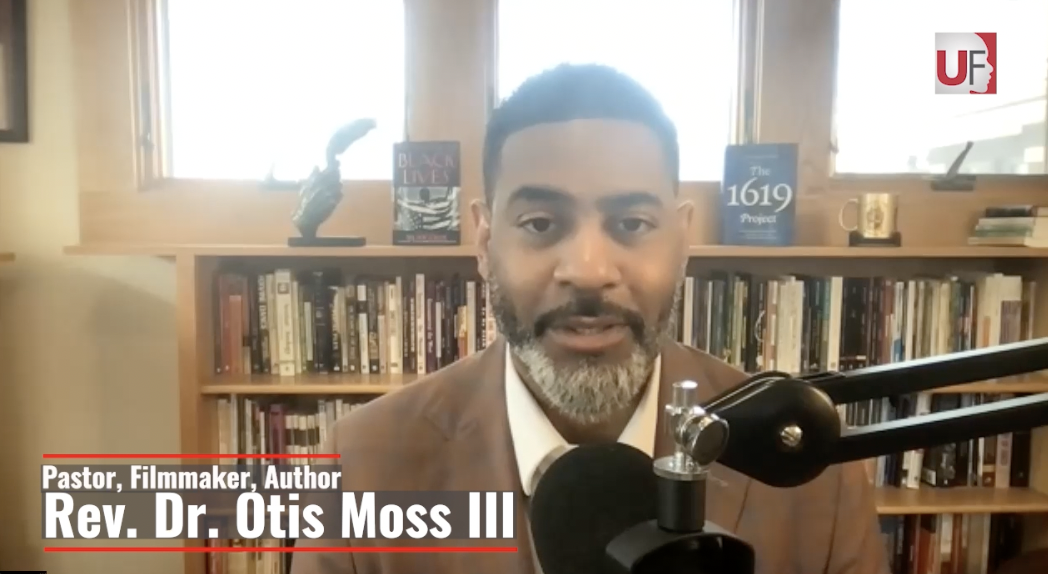
by Allen Reynolds, UrbanFaith Editor | Feb 20, 2023 | Black History, Commentary, Headline News, Magazine, Social Justice |
Rev. Dr. Otis Moss III is one of the most prolific prophetic voices of our generation. He is the Senior Pastor of Trinity United Church of Christ in Chicago, IL and his new book Dancing in the Darkness gives practical wisdom to face the darkness in our lives with prophetic hope. UrbanFaith editor Allen Reynolds sat down with his fellow HBCU and Yale alumnus, the one and only Rev. Moss to discuss his new book Dancing in the Darkness: Spiritual Lessons for Thriving in Turbulent Times. You can find the book everywhere books are sold and more about the book is below.
Rev. Moss serves as Senior Pastor of Trinity United Church of Christ which was the home church of President Barack and Michelle Obama. He has won multiple awards for his short film Otis’ Dream about his grandfather’s fight to vote in the United States. His parents were on the front line of the Civil Rights Movement, and he has been at the forefront of the fight for justice and civil rights in the 21st century. He calls himself a blues man committed to uniting love and justice in the tradition of Rev. Dr. Martin Luther King Jr. More about the book is below.
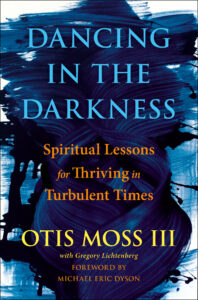
Once again, as Dr. Martin Luther King, Jr. first observed in the 1960s, it is midnight in America—a dark time of division and anxiety, with threats of violence looming in the shadows. In 2008, the Trinity United Church in Chicago received threats when one of its parishioners, Senator Barack Obama, ran for president. “We’re going to kill you” rang in Reverend Otis Moss’s ears when he suddenly heard a noise in the middle of the night. He grabbed a baseball bat to confront the intruder in his home. When he opened the door to his daughter’s room, he found that the source of the noise was his own little girl, dancing. She was simply practicing for her ballet recital.
In that moment, Pastor Moss saw that the real intruder was within him. Caught in a cycle of worry and anger, he had allowed the darkness inside. But seeing his daughter evoked Psalm 30: “You have turned my mourning into dancing.” He set out to write the sermon that became this inspiring and transformative book.
Dancing in the Darkness is a life-affirming guide to the practical, political, and spiritual challenges of our day. Drawing on the teachings of Dr. King, Howard Thurman, sacred scripture, southern wisdom, global spiritual traditions, Black culture, and his own personal experiences, Dr. Moss instructs you on how to practice spiritual resistance by combining justice and love. This collection helps us tap the spiritual reserves we all possess but too often overlook, so we can slay our personal demon, confront our civic challenges, and reach our highest goals.
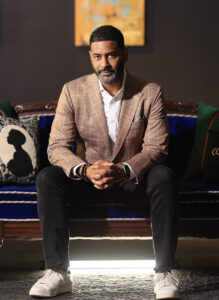
by Allen Reynolds, UrbanFaith Editor | Jan 31, 2023 | Black History, Commentary, Headline News |
Every Black History Month we see a million memes, quotes, and images of Black people who have played an important role in shaping the story and lives of black people in America. We have heard about Martin Luther King Jr., Harriett Tubman, Frederick Douglass, and Rosa Parks more times than we can count. If we’ve grown up with good black history education which is rare in these yet to be United States of America, then we might know Booker T. Washington or Maya Angelou. We know there is an active attempt to publicly whitewash black history as though the systemic destruction, repression, and marginalization of our history wasn’t enough. As a result it becomes more important than ever to teach and tell Black History.
But in an attempt to reclaim our history, let us not forget the key role faith played in the lives of so many of our black leaders. There is a reason why belief in God and practice of faith were so key in the lives of many (but not all) people we talk about during Black History Month. So let’s lift up the faith of our black heroines and heroes this month as we continue to live out our own faith. Below are just some notable examples of historical moments and key black leaders who were influenced by their faith.
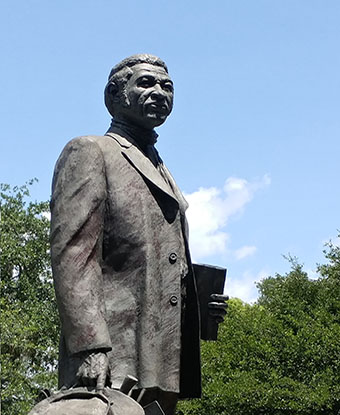 Denmark Vesey
Denmark Vesey
Denmark Vesey was an abolitionist and former slave who planned and organized an armed slave rebellion to free the slaves in Charleston, SC. Charleston was the largest slave trading port in the United States during the early 1800s. He was the slave of a ship captain who won the lottery and paid for his own freedom with his earnings, but was not able to pay for his family’s freedom. As a result he became intent on ending the institution of slavery itself. Vesey was a worshipper and small group teacher at the African Church which became Mother Emmanuel AME Church, and his faith informed his advocacy for abolition.
He was inspired by the Haitian revolution and planned to flee to Haiti with the freed slaves after the rebellion. He inspired other abolitionists such as Frederick Douglass, David Walker, and Harriet Beecher Stowe. It is well noted that the abolition of slavery was a result of the work of Christian abolitionists.
The Christianity of Vesey and David Walker after him did not advocate for passive waiting to slavery to end. As he read Isaiah, Amos, and especially Exodus he were convinced that armed rebellion could be used by God to bring freedom to enslaved Africans. He began to preach a radical liberation theology from the Old Testament almost exclusively as he prepared for rebellion. Denmark Vesey resurfaced as a popular figure in recent years in the aftermath of the horrendous shooting at Mother Emmanuel AME Church in 2016.
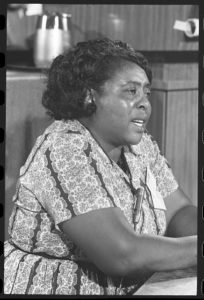 Fannie Lou Hamer
Fannie Lou Hamer
Fannie Lou Hamer was the founder and vice-chairperson of the Mississippi Freedom Democratic Party, which successfully unseated the all-white Mississippi delegation at the Democratic Party’s convention in 1968. This and other efforts earned her the title “First Lady of Civil Rights.”
In 1962, Fannie Lou became involved with the Civil Rights Movement when the Southern Christian Leadership Conference and the Student Nonviolent Coordinating Committee held a meeting in Ruleville, Mississippi. She and 17 others went to the county courthouse and tried to register to vote. Because they were African American, they were given an impossible registration test which they all failed. Fannie Lou’s life became a living hell. She was threatened, shot at, cursed and abused by angry mobs of white men including being beat almost to death by the police and imprisoned in Mississippi in 1963 for registering to vote.
Fannie Lou Hamer often sang spirituals at rallies, protests, and even in jail. Her faith in God is what she felt carried her through those difficult experiences. She quoted the Bible to shame her oppressors, encourage her followers, and hold her ministerial colleagues in the SCLC and SNCC accountable. She was a devout member of William Chapel Missionary Baptist Church, and let her faith permeate everything she did.
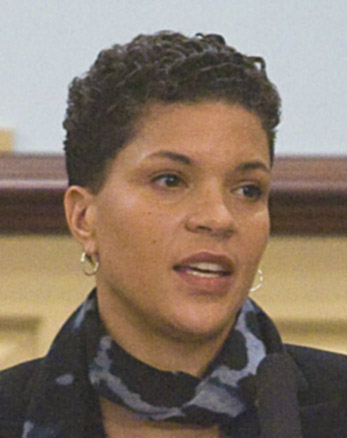 Michelle Alexander
Michelle Alexander
Michelle Alexander, JD is a civil rights lawyer and advocate, a legal scholar and the author of the New York Times best seller “The New Jim Crow: Mass Incarceration in the Age of Colorblindness.” The book helped to start a national debate about the crisis of mass incarceration in the United States and inspired racial-justice organizing and advocacy efforts nationwide.
Alexander performed extensive research on mass incarceration, racism in law and public policy, and racial justice to write her book published in 2010. She has lectured and taught widely on her work as a professor of law and religion at Stanford University, The Ohio State University, and Union Theological Seminary. The New Jim Crow became a foundational text for many of the reforms being advocate for by various organizations involved in the recent push for criminal justice reform and the movement for black lives.
Alexander was driven by her faith to advocate for justice system reforms, believing that God called her to it and seeing it as her reasonable service. Her faith drives her advocacy for justice for the marginalized, care and compassion for all people, and teaching. She feels as though her work in law and faith are inextricably linked, and that people of faith are poised to serve one of the most important roles in changing the system. She is currently a visiting professor at Union Theological Seminary in New York exploring the spiritual and ethical dimensions of the fight against mass incarceration.
https://www.nps.gov/people/denmark-vesey.htm
https://www.pbs.org/thisfarbyfaith/people/denmark_vesey.html?pepperjam=&publisherId=120349&clickId=3860507074&utm_medium=affiliate&utm_campaign=affiliate
https://urbanfaith.com/2021/10/faith-endurance-of-civil-rights-activist-fannie-lou-hamer-revealed-in-new-biography.html/
https://divinity.yale.edu/news/michelle-alexander-mass-incarceration-believing-possibility-redemption-and-forgiveness
https://www.nytimes.com/by/michelle-alexander
A Salute to Black Civil Rights Leaders, Richard L. Green, Chicago: Empak Enterprises,1987, p. 11
by Deida Massey | Mar 7, 2016 | Headline News |
 Over the next few weeks, we will be featuring blog entries from celebrity makeup artist Deida Massey on her experience as a Christian makeup artist in the entertainment industry. Learn more about Deida’s journey as she answers our first question below and check back each Monday for Deida’s latest blog entry.
Over the next few weeks, we will be featuring blog entries from celebrity makeup artist Deida Massey on her experience as a Christian makeup artist in the entertainment industry. Learn more about Deida’s journey as she answers our first question below and check back each Monday for Deida’s latest blog entry.
How did you begin your career as a makeup artist?
I started my career as a professional makeup artist in 1998. While obtaining a Master of Jurisprudence from the Loyola University School of Law and working full-time as a paralegal, I worked nights and weekends at makeup counters in downtown Chicago.
While building my confidence working at various makeup counters, I started assisting some local makeup artists. Through assisting, I was afforded the opportunity to get representation with Ford Models Management Team in Chicago. My agent booked me on advertising and editorial shoots for magazines, commercials and hair ads.
Christmas 1999, a family friend bought me two self-help makeup books by Reggie Wells and Sam Fine who are both pioneers in the makeup industry. I thought after reading both books, perhaps my friend was sending me a subliminal message to jump-start my career in makeup. Well to my surprise, and everyone else, it worked!
Working at the counters, for Ford Models and reading those two books gave me the courage, confidence and clarity I needed to choose a career as a professional makeup artist. Before I knew I could make a living doing makeup, I thoroughly researched the industry. More importantly, I asked those who were in the business how lucrative it was.
Transitioning from a 9 to 5 to self-employment, I must admit I was a bit apprehensive. Later, after taking the leap of faith, it became one of the most rewarding decisions of my life.
I remember taking a class in the Chicago area by a woman who had saturated the industry in Los Angeles. I figured if I wanted to move there, I needed to start obtaining information that would help me put a plan in place.While in the seminar, the words “relocation” resonated within me as she explained some very important steps one needed to take in order to be successful. I quit my 9 to 5 in 2002, transported my car, rented my condo and took a courageous step towards a life of uncertainty.
After putting a plan in place and landing in Los Angeles, my roommate and I networked with people within our industry. Through networking, I landed jobs on music videos with DMX and Keyshia Cole at the time. Later, a close friend worked with Def Jam West and started booking me on photo shoots and videos with Ludacris and other artists that would later help build my resume.
I initially moved to LA to work in film and television. However, I knew by encountering new territory, I had to work my plan first and then execute through perseverance. While living in LA, I still worked at makeup counters to help build my confidence. I was focused and worked the vision GOD had given me.
When I moved to LA in 2002, I never knew or even sought to become a celebrity makeup artist. Even hearing the phrase today seems so cliché. However, GOD’s dreams are bigger than any dreams we have for our lives. My dreams are still unfolding and every step of the way I have learned to trust GOD.




 Denmark Vesey
Denmark Vesey Fannie Lou Hamer
Fannie Lou Hamer Michelle Alexander
Michelle Alexander Over the next few weeks, we will be featuring blog entries from celebrity makeup artist Deida Massey on her experience as a Christian makeup artist in the entertainment industry. Learn more about Deida’s journey as she answers our first question below and check back each Monday for Deida’s latest blog entry.
Over the next few weeks, we will be featuring blog entries from celebrity makeup artist Deida Massey on her experience as a Christian makeup artist in the entertainment industry. Learn more about Deida’s journey as she answers our first question below and check back each Monday for Deida’s latest blog entry.